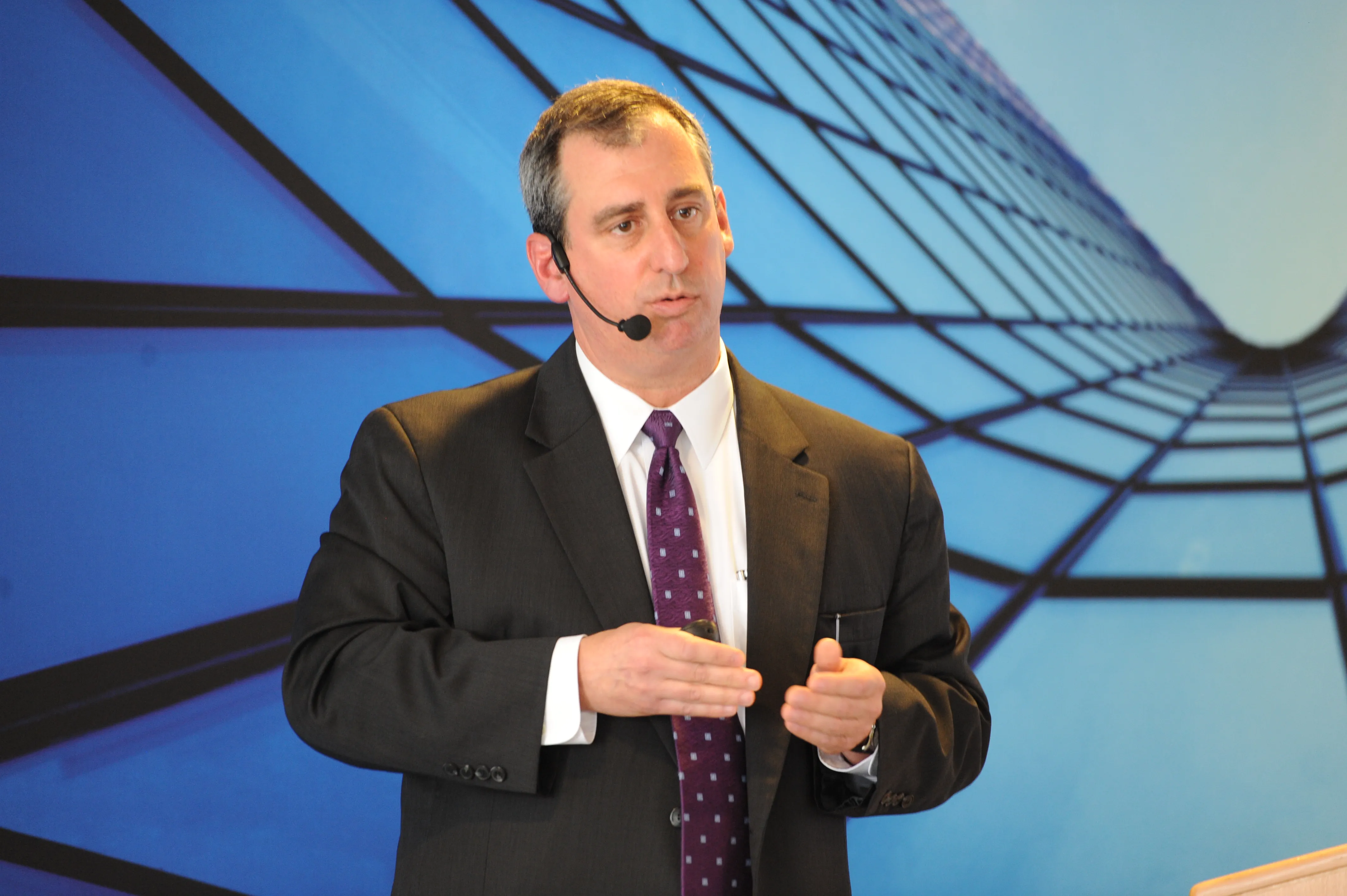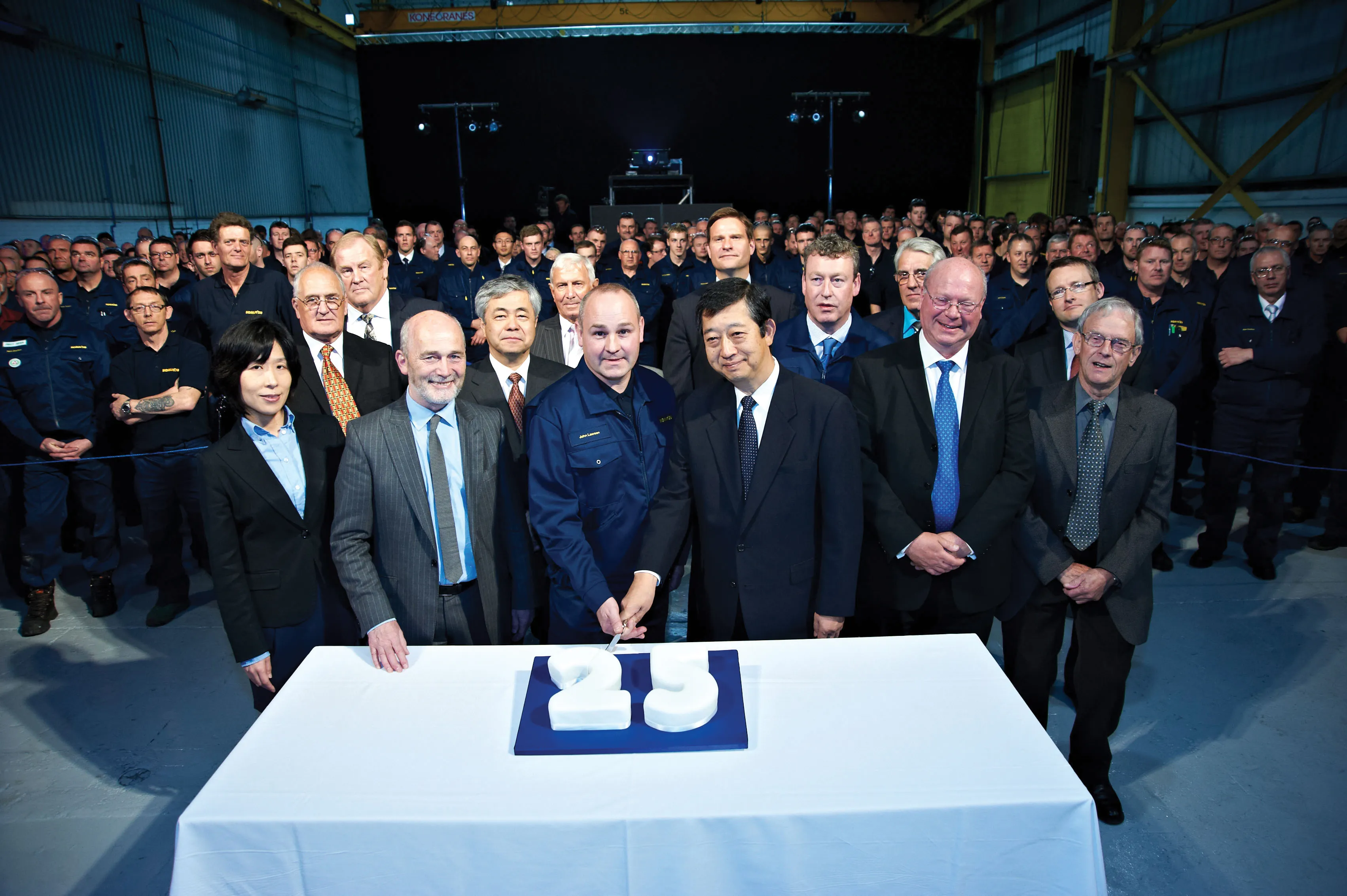
Volvo’s Chinese manufacturing subsidiary SDLG is making inroads into the export market and could be destined to play a much more important role in the Swedish group’s global strategy.
“As we grow our export strategy there is an opportunity for
SDLG - Shandong Lingong Construction Machinery - is a joint venture created in 2006 and 70% owned by Volvo CE. SDLG develops, manufactures and markets wheel loaders, excavators, backhoe loaders and road rollers for its domestic market, China. SDLG products are low and medium-end equipment, which complements Volvo CE's strategy of selling its Volvo-brand high-end products with higher prices.
But more and more SDLG products are being exported to emerging markets, said Weissburg, who took up his post in January last year, moving from being president of Volvo Financial Services, the group’s customer finance company. He originally joined Volvo in 2005 as president of the financial services business in his native North America – he was born in the US state of Ohio.
The trend within the global construction market is for customers wanting machinery that costs less and will be capable of less rugged jobs where superior quality and durability of machines are not essential. In other words, customers need less expensive, non-premium machines.
“And we like this trend because we’re are a multi-brand design-develop manufacturer,” said Weissburg.
“Even within this premium [Volvo] brand, our company and the reset of the industry are repositioning certain products to be ‘high-value’ as opposed to ‘very high premium’.” SDLG, the number one exporter of Chinese construction wheel loaders and excavators combined, is Volvo’s high-value brand.
But Volvo is not reinventing the wheel for SDLG. He said SDLG’s export strategy is to piggyback onto Volvo’s global distribution network. ”We’ve taken Volvo Construction Equipment dealers and added SDLG products to their offering. That means shared back office, shared technical expertise and shared brand equity of the dealer in his or her local marketplace. This working well for us, still in its early stages but accelerating more and more. This is our competitive advantage.”
Late last year Volvo exited three equipment sectors – milling machines, Volvo branded motor graders and Volvo back hoe loaders. They were no longer a good “financial and strategic fit” in Volvo’s product portfolio. Some money and manpower from those areas went into developing the SDLG brand, including export potential.
At the moment, SDLG line-up doesn’t have Tier4 Final engines. “But wherever we sell, we would make the right compliance changes, he said. “We’re having good export success throughout southeast Asia, some in India but not as strong generally, good success in eastern Europe. Russia is a very strong market for us, although it’s is down today. Africa we continue to make inroads and Latin America is also doing quite well.
“The North American market is in its early stages. We’re one of the first to market, but as in Europe, there is less of a market acceptance [of lower-end equipment]. We have, though, launched the first such pilot programmes for SDLG’ wheel loaders in the North American market with greater success that even we anticipated. “
One of SDLG’s most recent North American agreements was announced in March. In the western Canadian province of British Columbia, Great West Equipment joined the SDLG dealer network, selling and supporting the complete line-up of SDLG wheel loaders at the dealership’s 11 locations in the province and in the neighbouring northern territory of the Yukon.







